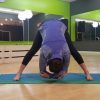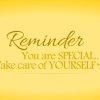
We’ve all encountered bad habits we’d like to break, relationship patterns that cause conflict, and limiting beliefs which hold us back. Often, we ask ourselves: how do I move past these habits, patterns, and beliefs?
Well, the answer to that question is: self-reflection.
Luckily, you can practice self-reflection anytime and anywhere! Grab a journal, or simply get quiet and eliminate distractions, and you’ll be ready to get started.
What is self-reflection?
We can sometimes move through our lives running from both our mistakes and our emotions, either too ashamed or too afraid to bring awareness to them. This shows a lack of self-reflection, and it can occur when we believe we can’t handle an emotion, or we aren’t competent enough to correct a mistake.
Self-reflection is simply the practice of compassionately examining your actions, thoughts, feelings, and beliefs.
Compassion is key here – many of us are conditioned to self-reflect in a critical, unkind way, which is why we run from self-reflection in the first place.
So, effective self-reflection is essentially noticing why you think/feel/act a certain way, compassionately (e.g., “it makes sense why I’d act that way– even though I recognize that it hurts people”) as opposed to critically (“I shouldn’t feel this way. I’m so ungrateful.” etc.).
Examples of self-reflection
Here are a few hypothetical scenarios, followed by examples of how one might self-reflect on them. This process can happen internally, or through journaling.
1. You woke up feeling irritable one day
Let’s say you woke up today feeling like everything was getting on your nerves. You may have even snapped at your partner or the cashier at the gas station. Your first instinct might be to blame yourself– i.e., “I always do this. Why am I such a bad person?”.
Compassionate self-reflection, however, would instead sound something like: “Okay, I’m feeling especially irritable today. Why might that be? I did wake up feeling stressed about work. That’s understandable. Next time I get stressed, I’m going to take an extra five minutes to meditate in the morning, and I’ll apologize to my partner for snapping at them right now.”
2. You binged on food/alcohol/etc.
Perhaps you drank a little more wine than you meant to drink last night, and you woke up today with regrets. Again, rather than thinking, “Why do I always do this? I need to get it together,” you may practice compassionate self-reflection.
This might sound something like: “This is a pattern, and it’s nothing to be ashamed of as long as I take action on it. I have been feeling sad about that argument with my friend; I tend to drink more when I’m sad. Maybe next time I’m sad I can stay away from alcohol and journal about it instead.”
Ways to practice self-reflection
The following are 8 powerful ways to practice self reflection.
1. Journal
Journaling is the simplest, and possibly the most effective, method of self-reflection; you don’t even need a journal to start! If you don’t have a journal, just grab a pen and paper. All you need to do is start writing. Don’t think too hard; simply ask yourself what you think and feel about whatever situation you’re reflecting on, and write for as long as you please.
Still don’t know where to start? There are loads of free journal prompts available to you – simply do a quick Google search for “self-reflection journal prompts”!
Also Read: 20 Inspirational Self Reflection Journals To Help You Rediscover Yourself
2. Meditate on your feelings
Don’t worry if you don’t know “how” to meditate. You don’t need fancy methods, mantras, or mudras to self-reflect during meditation.
Bring a situation which you’d like to self-reflect on to mind. Then, sit down, eliminate all distractions, and set a timer for at least five minutes. As you sit, allow the situation, along with all of its associated thoughts and feelings, to float to the surface of your mind. Simply observe all these thoughts and feelings without judging, analyzing, or changing them, to the best of your ability.
The more you practice this, the more you’ll notice the patterns behind your words, actions, and feelings.
3. Take a walk
If you struggle to sit still and meditate, why not try a little moving meditation instead? Walking in nature, whether it’s up a mountain or in a neighborhood park, grounds your energy and relaxes your nervous system. This will allow you to think more clearly about the situation, rather than obsessively analyzing every minute detail.
As you walk, remain present. Walk slowly. Notice the way each footstep feels. Notice the sounds around you, and the way the air feels on your skin. This practice of presence will work your mindfulness muscles, allowing you to self-reflect with ease.
5. Talk it out with a coach or therapist
Therapists aren’t only for people with acute mental illness, and coaches aren’t only for people who are trying to earn seven figures this year. Either of these helping professionals can serve as an invaluable investment for you if you’d like to do some deep self-reflection.
Coaches are trained to hold space for your self-reflection and help you set goals for the future. Therapists, on the other hand, are trained to help you self-reflect and heal from your past. Both are beneficial; choose the one which best serves your specific needs.
6. Pray to God/the Universe/your spirit guides
If you believe in the divine in any form, prayer can help you to self-reflect. Simply talk to God, the Universe, or your guides the way you’d talk to a trusted friend. Ask the divine beings what they’d like for you to know about the situation you’re reflecting on, and trust that the answer you receive is the right one. Journaling after prayer can help, too.
7. Ask yourself powerful questions
In this case, you’ll play the role of the coach, with yourself. Try asking yourself questions which give you an opportunity to grow, rather than an opportunity to berate yourself.
For example: instead of asking, “Why do I always do this?” try asking, “What can I learn from this?” Again, for bonus points, break out your journal while you practice this exercise!
8. Practice breath work
Breathwork, such as the ‘box breathing technique’, bee breathing or alternate nostril breathing (to name a few examples), soothe the nervous system, which calms obsessive thoughts and allows us to think more clearly.
Relaxing the nervous system is imperative when practicing self-reflection. An overstimulated nervous system gives the brain a clear pathway to self-criticism, which is not constructive. A relaxed mind makes way for self-compassion, on the other hand, which will allow us to effectively self-reflect.
9. Eliminate distractions (such as technology)
Use this tip while practicing any of the other strategies listed above. TV, social media, and smartphones don’t only distract us; they also limit our abilities to look at ourselves deeply. When we’re focused on what’s going on in our favorite TV show or what a celebrity said on Instagram, our inner wisdom becomes obscured.
So, try turning off the TV and computer, and putting your phone on airplane mode, while you self-reflect. You’ll find that you’re able to listen to your intuition much more clearly.
Benefits of self-reflection
1. Increases your capacity for doing hard things
When you’re able to compassionately self-reflect, you gradually realize how resilient you actually are. You understand that, even when you make mistakes, you have the know-how to lovingly improve upon and learn from them. This allows you to take more chances in life, which leads to greater and greater rewards.
2. Increases empathy
Compassionately self-reflecting enables an understanding of why you do the things you do. If you do your best to not turn this into self-criticism, then self-reflection can greatly increase your capacity for empathy; by understanding yourself, it becomes easier to understand others. You understand others’ mistakes and shortcomings, rather than vilifying them.
Similarly, if you are overly empathetic or have other imbalances, self reflection can help you come into balance.
3. Improves your relationships
Self-reflection is akin to communicating with yourself, and we all know how important clear communication is in a relationship. Thus, if you can learn how to compassionately communicate with yourself, you’ll improve your communication skills as a whole– helping you to not only improve yourself, but also to improve relationships with partners, friends, and family.
4. Increases joy and satisfaction
When we don’t understand why we enact certain harmful patterns, we tend to feel trapped within them. If you’ve read up to this point, you understand by now that self-reflection can help you to break harmful patterns and limiting beliefs. This, in turn, allows you to feel more free and live in a way that truly serves you.
5. Helps you to find your true purpose
Do you know what your purpose is in life? If not, you may find yourself feeling stuck and unfulfilled. Self-reflection can help with that; as you get to know yourself, you’ll slowly uncover what you like, what you don’t like, and how you’d love to serve the world. Keep self-reflecting, and you’ll find yourself gradually inching towards your deepest passion in no time!
To sum it up, you don’t have to be a monk or a guru to practice self-reflection, and you don’t need a lot of time, either! Self-reflection is for everyone, whether you’re ready to step up your career, break a bad habit, or let go of a limiting belief, and it can make positive waves in every area of your life!







